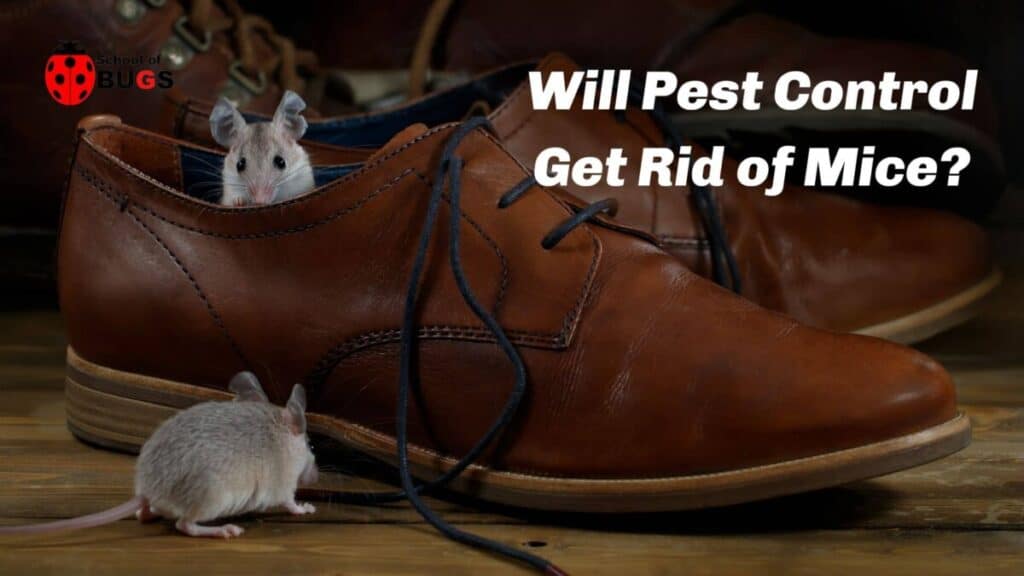
Mice are adorable as pets, but not so much as pests. They can invade your home in the dozens, using the warm spaces between your walls as nesting ground.
Here’s everything you need to know about mice invading your home and how pest control can help.
Pest control experts are proficient at removing mice from your home, helping you to address the root cause of their activity and keeping them out of your home permanently.
Pest control can make all the difference when it comes to taking care of unwanted animals in your home, and relying on their services is often the fastest way to get pest-free for keeps. The rest of this article will cover mice infestations and why you need a pest control service.
How Do Mice Enter Your Home?
In order to understand the significance of pest control and recognize just what exactly pest control specialists do, let’s take a look at how these small furry rodents get into your home in the first place.
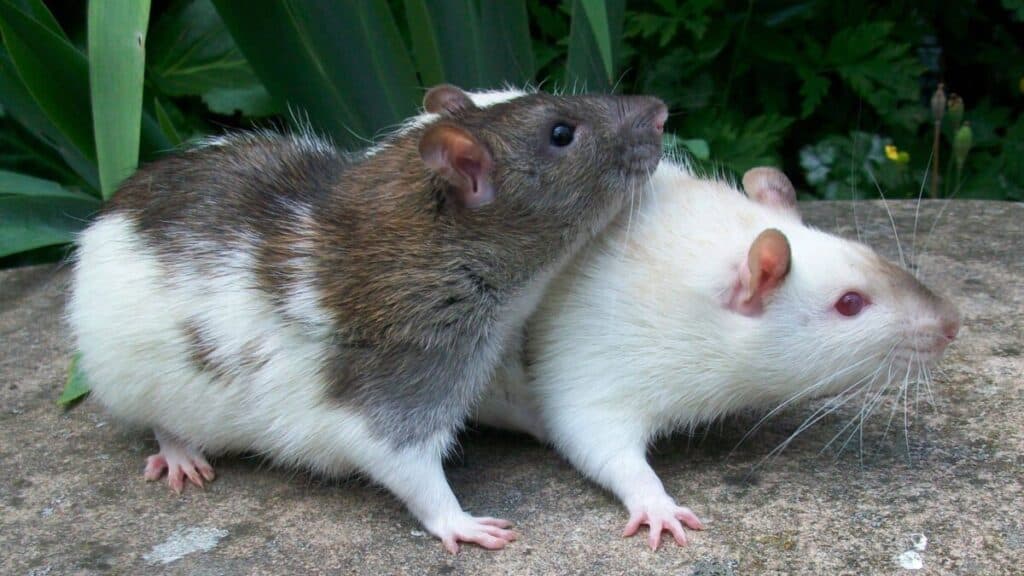
Mice are tenacious and enterprising, capable of finding shelter even in the most unlikely places. Any small gaps or cracks in your home, particularly near the roofline or window, are prime targets for mice invasions. They also tend to make use of HVAC or utility pipes, especially ones that aren’t sealed properly.
The problem of mice invasions is especially common with roof or attic vents. The warm, damp atmosphere is perfect for mice to breed, and the attic is the ideal spot to avoid human activity.
Any door or window frame that’s not installed properly can leave a large enough gap for mice to enter, and if they’re desperate enough, mice can even chew through the wood to get in.
To combat this issue, pest control will check for areas evidencing mouse activity (such as droppings near gaps and crevices) and seal them up so that once the mice have been exterminated or expelled from the home, no new visitors can take their place.
What Damage Do Mice Cause?
If you’re squeamish around mice, then you don’t need any extra incentive to give your local pest control service a call.
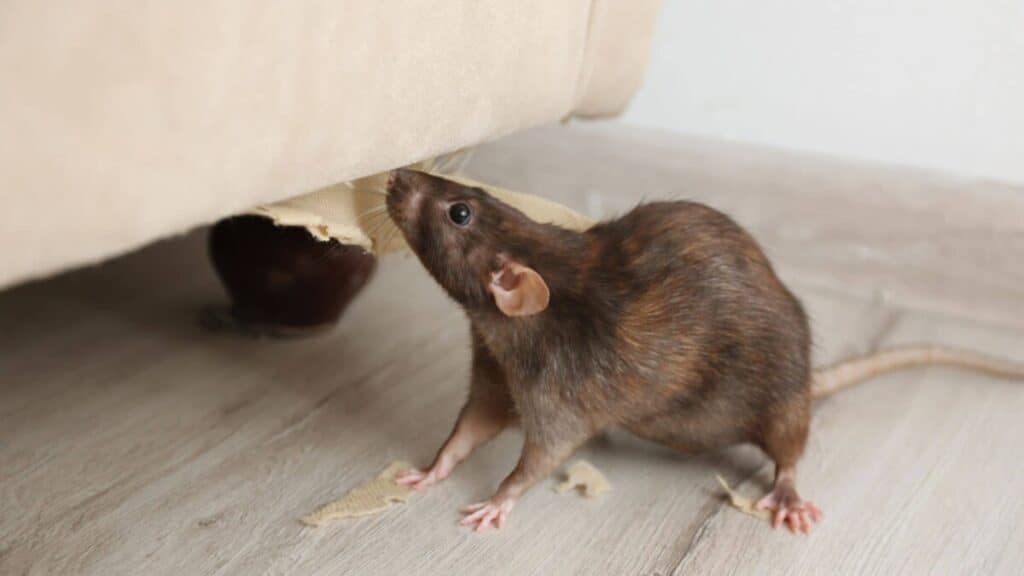
In addition to frightening you upon seeing them, mice can also cause extensive damage to your home.
Gnawing, defecation, and nest-building are all destructive to your home and apartment. Mice will chew on just about anything to use as material for their nests, burrowing into upholstered furniture or insulation to make a nest or gather resources.
As such, if you have a mouse problem, then it’s a good idea to protect your valuables—antique furniture, paintings, documents—by storing them in a safe location until you get the problem under control.
Worse yet, this incessant gnawing behavior can remove the insulation around wires, creating a serious fire hazard.
A similar risk is present when mice make their homes inside electrical appliances, chewing through the wiring and causing short-circuits and electrical hazards.
If their destructive behavior wasn’t bad enough, mice also leave behind a trail of urine and feces, prompting the spread of disease to you and your pets.
Since mice will eat pet food, this tendency to drop on the spot is particularly dangerous for pets, who can potentially ingest mouse droppings with realizing, causing illness.

Food in the pantry is also subject to invasion and poses a risk of food contamination for you and your loved ones.
These unpleasant droppings are also a scent marker for other mice, alerting them to the great home they’ve found. If unaddressed, mice can breed and make the infestation more problematic.
A single female mouse can have 8 litters a year, birthing up to 100 mice. It’s a vicious cycle of destructive and downright dangerous activity that evidences a simple fact: humans and mice cannot coexist.
How to Spot an Infestation
Your first sign of an infestation will usually be mouse droppings since mice tend to be more active at night. Their droppings look like a grain of rice about a quarter inch long and dark in color.
As a note, you can tell the difference between mouse and rat droppings by the wider, longer appearance of rat droppings.
As soon as you see these telltale indicators, you should check some of the most common hotspots for mouse activity, namely your shelves, pantry, and cabinets.
Mice love to hide in secluded places, and a pantry is an ideal place. Those cardboard boxes not only house delicious food, but the cardboard itself makes for great nesting material.
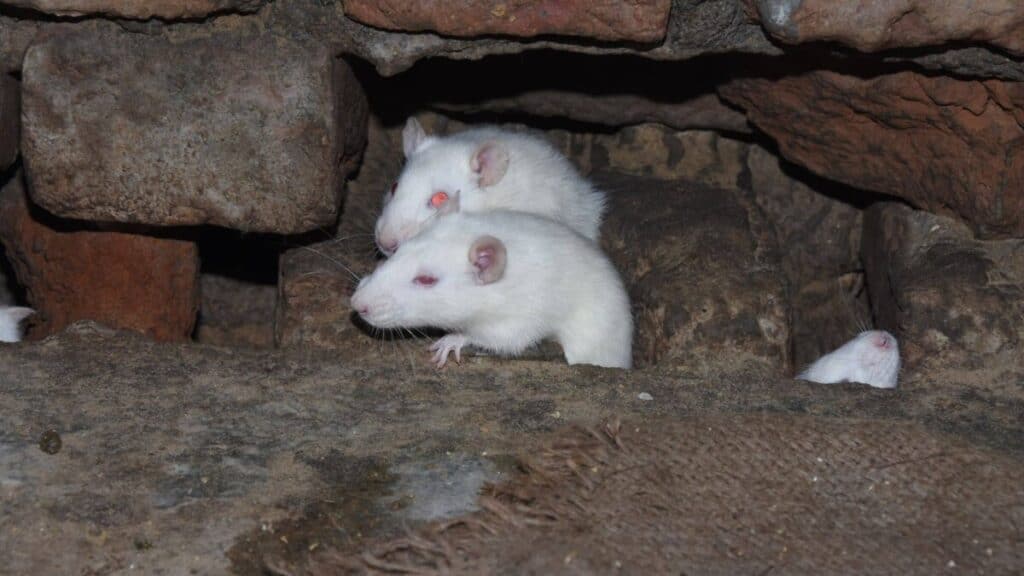
Check for gnaw marks, urine, and feces in your cupboards—empty out your cupboards if you must—and be sure to throw away anything showing signs of tampering.
What Can You Do in Response to a Mouse Infestation?
Mice are a nightmare to deal with, and the age-old rule of bugs: “Where there’s one, there’s always more” certainly applies to these furry rodents.
There are some steps you can take yourself to reduce mouse activity in your home. Start by hunting down their point of entry by tracking their droppings and activity.
Any cracks in your walls, door gaps, or other crevices larger than a dime are big enough for mice to get through and need to be sealed up with something permanent that the mice cannot chew through once the mice in your home have been dealt with.
Place mouse traps near these points of entry for the best results. Mice tend to avoid foot traffic, so placing your traps along walls and behind your trash cans is ideal for the best results.
There are a variety of traps available, both lethal and nonlethal, but you’ll need some kind of bait to lure the mice in. Chocolate, cheese, peanut butter, nuts, and birdseed are all great options.
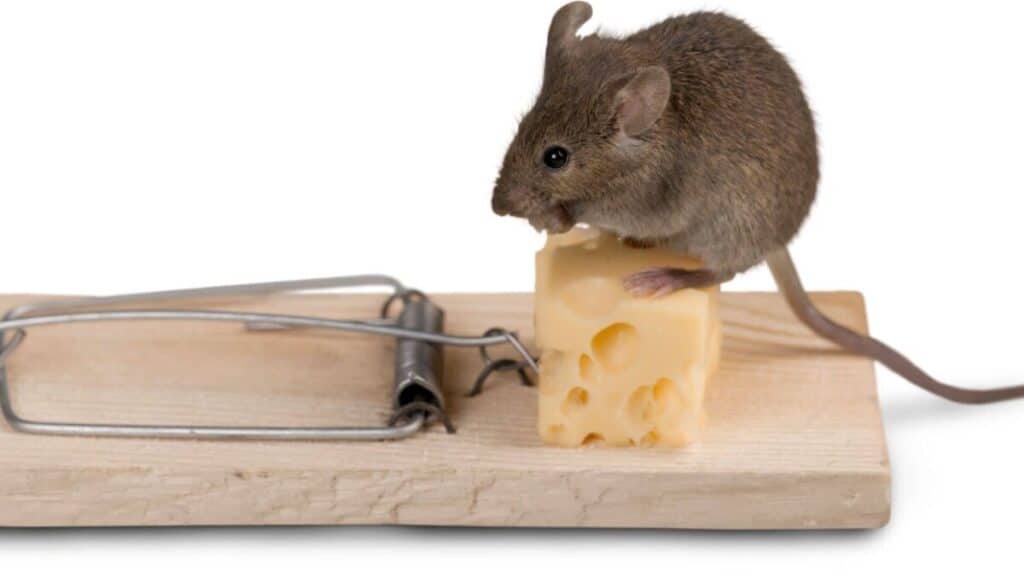
The smartest thing you can do to discourage mice in the first place is to clean up the shop. Mice love a warm environment rich with building materials and food.
If your home is an ideal location for mice and meets their needs, then you’re likely to have to deal with infestations over and over again.
A little cleaning and sealing of the entrances go a long way in making your home both inaccessible and unideal for mice.
Is a Pest Control Company Worth It?
When it comes down to it, pest control experts are your best bet to deal with a mouse problem.
They have the skillset needed to identify the source of the infestation for effective trapping and can help you seal up any entry points in your home so that you’re pest-free for good.
Investigation
Pest control companies rely on their extensive experience dealing with pests to identify problematic situations in a home, investigating your entire home for pest problems. They can also help you identify other problems as well.
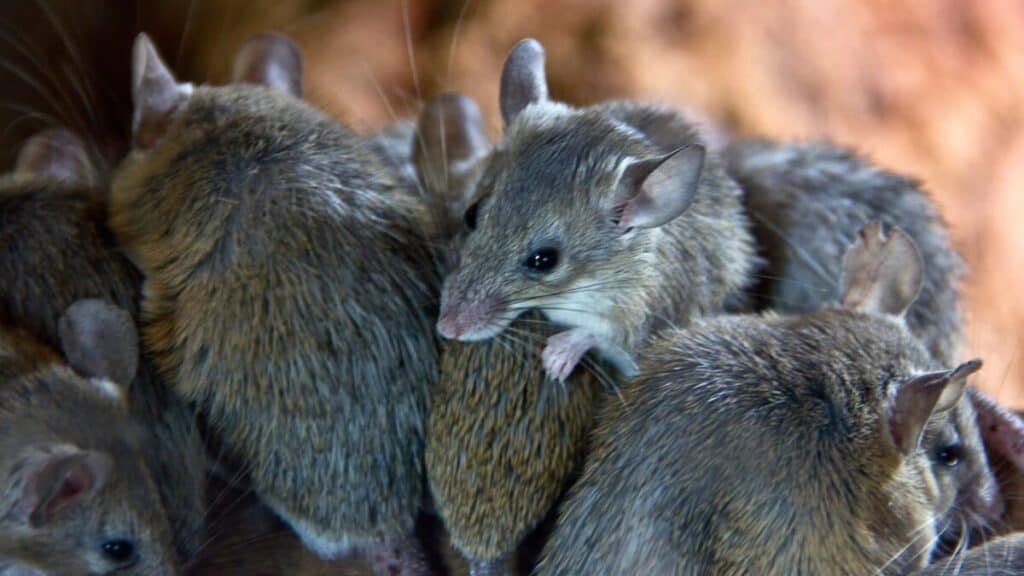
If there’s mouse droppings or activity to be found, then a pest control expert will know exactly where to look and what to look for; moreover, based on the level of activity, a professional pest control expert will be able to assess the extent of the problem and the treatment steps necessary.
Treatment
Next, your experts will treat your home as necessary. When it comes to mice, specialists still rely on traps strategically and carefully placed around a home to get rid of mice.
This treatment may last for several days, if not weeks before the mouse activity has been thoroughly rooted out.
Prevention
Of course, a mouse infestation will always return if the conditions inside the home are ideal and the house is accessible from the outside.
A good pest control company will always go the extra mile to fortify the home from pests by sealing and caulking cracks and gaps to prevent mice from entering in the future.
Is Pest Control Worth It?
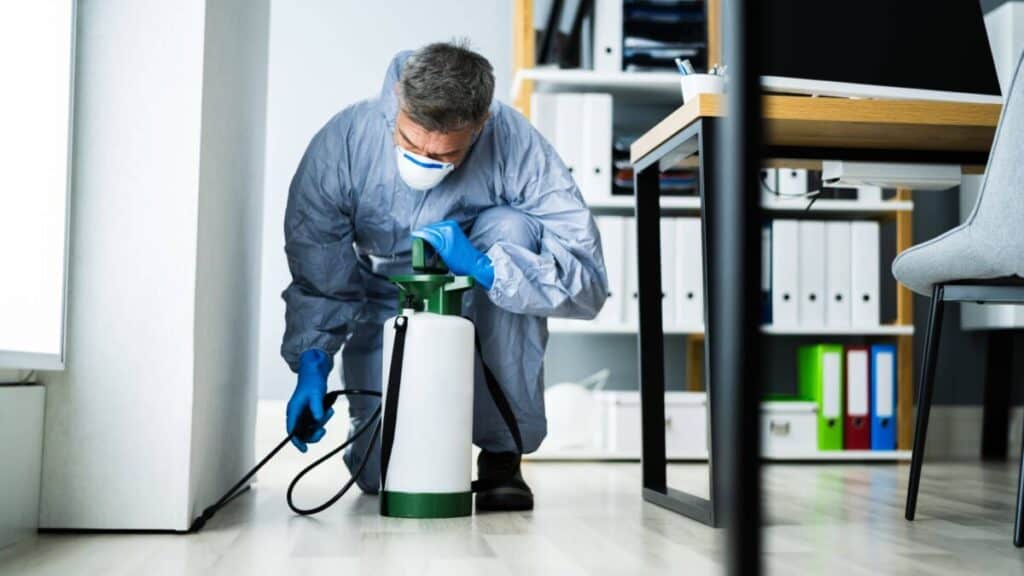
If not addressed, a mouse infestation can get out of hand and pose a threat to your property and your health.
Pest control is the only available solution that ensures you have knowledgeable professionals at your side through the entire process, not only dealing with the current infestation, but also preventing future ones.
The experience and knowledge of pest control experts come in handy to address mouse infestations quickly, humanely, and effectively.
Mousetraps and rodenticides can be dangerous when used frivolously, and when you use a pest control service, you can rest assured that these dangerous materials and chemicals are being used responsibly.
In addition, a pest control service can also apply preventative treatment intended to ward off other pests as well.
Final Thoughts
A mouse infestation is something no one wants to deal with, but if the problem arises, then you can always rely on your local trusted pest control experts to identify the source of the problem, treat it, and implement preventative measures to protect your home from future invasion.
Coexisting with these destructive rodents is simply not an option, so if you start to see pest activity in your home, give your trusted pest control experts a call today!
Alright, that’s it for this article, here are a few hand-selected articles that you might also find interesting reads:
Pest Control Under a Mobile Home – What Works BestShould I Sign Up for a Pest Control Subscription Service?
Which Pest Control Company Is the Best for Termites?
Recent Posts
Tiny Black Bugs in Bathroom NO WINGS: What They Are and What to Do!
Finding tiny black bugs in your bathroom can be uncomfortable, to say the least. Especially if they are persistent, or they appear in very large numbers, which they often like to do. When it...
Tiny Black Bugs in Plant Soil - What Are They & What To Do About It
A short horror story: You get a new houseplant. You do your best to take care of it. You’ve ensured that it has the right soil, the right amount of sun, it gets enough water. And then one day, you...

